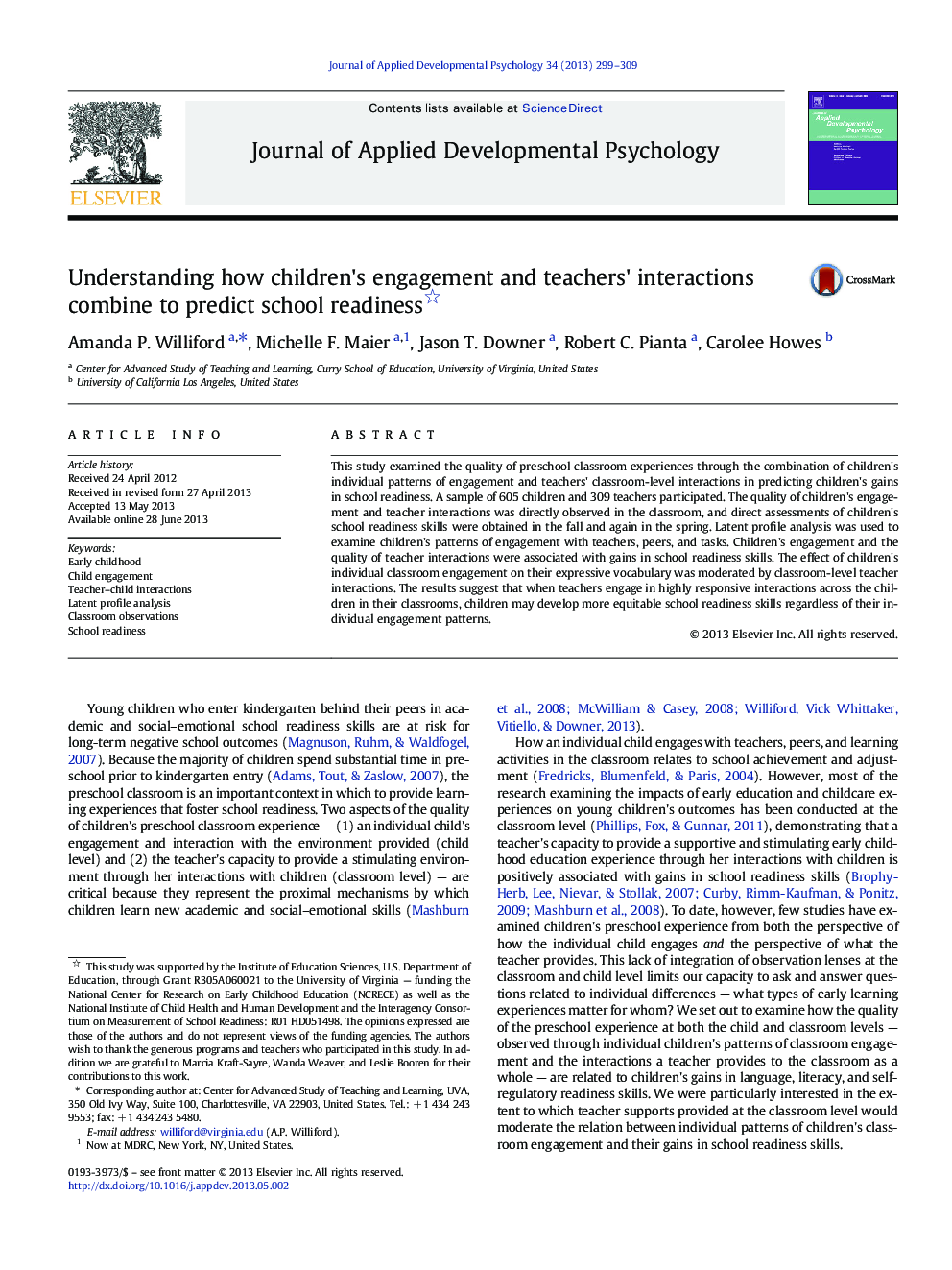| کد مقاله | کد نشریه | سال انتشار | مقاله انگلیسی | نسخه تمام متن |
|---|---|---|---|---|
| 359816 | 620286 | 2013 | 11 صفحه PDF | دانلود رایگان |

• We combined child engagement and teacher interactions to predict school readiness.
• Observations assessed interaction quality at the child and classroom level.
• Children's individual engagement and teachers' interactions predicted school readiness gains.
• Teacher interactions moderated links between child engagement and school readiness.
This study examined the quality of preschool classroom experiences through the combination of children's individual patterns of engagement and teachers' classroom-level interactions in predicting children's gains in school readiness. A sample of 605 children and 309 teachers participated. The quality of children's engagement and teacher interactions was directly observed in the classroom, and direct assessments of children's school readiness skills were obtained in the fall and again in the spring. Latent profile analysis was used to examine children's patterns of engagement with teachers, peers, and tasks. Children's engagement and the quality of teacher interactions were associated with gains in school readiness skills. The effect of children's individual classroom engagement on their expressive vocabulary was moderated by classroom-level teacher interactions. The results suggest that when teachers engage in highly responsive interactions across the children in their classrooms, children may develop more equitable school readiness skills regardless of their individual engagement patterns.
Journal: Journal of Applied Developmental Psychology - Volume 34, Issue 6, November–December 2013, Pages 299–309